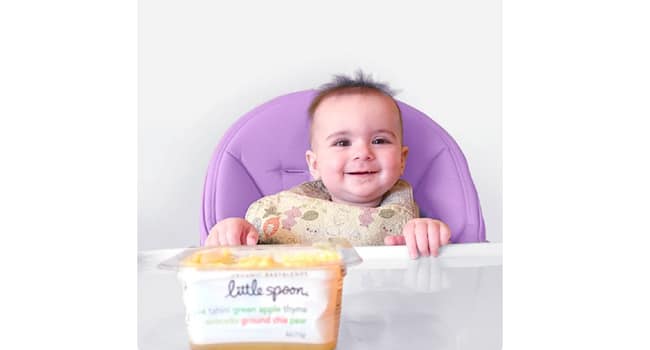Transitioning from breast milk or formula to solid foods can be a mixed bag of emotions for moms and kids. From now on it’s going to be an exciting journey, one that’s sometimes overwhelming and sometimes satisfying, but messy at all times. As a new parent, you may have a lot of questions that you are afraid to ask about. We have rounded up some of the most common ones:
- When Should I Start Solids?
The American Association of Pediatricians and the World Health Organization now recommend waiting six months, after birth, before starting solids. Feeding solids should start as complementary, i.e., solids shouldn’t replace breast milk or formula but should be introduced in small amounts frequently and consistently. Breast milk should continue to be the child’s primary source of nutrition until they are at least 12 months old. Introducing a variety of solids helps satisfy the growing child’s nutritional requirements. Variety also helps create children that aren’t picky eaters and can prevent allergies. Some parents, however, prefer to wait until the baby shows signs of readiness. Some signs that your baby is ready for solids include: an ability to sit unsupported, the baby reaching out for food, and the baby being able to transfer food to the back of its mouth without spitting.
- What to Avoid and What to Feed?
There are different opinions regarding feeding peanuts, fish, cooked eggs, and other allergy-causing foods to babies before they are at least 12 months old. While some doctors suggest waiting until the child is three, some researchers recommend introducing peanut-containing foods well before the baby’s first birthday. The US National Institute of Health suggests that early exposure dramatically reduces a child’s chances of becoming allergic. But if you or someone in the family is allergic to certain foods, speak to your pediatrician to learn when and how to introduce them. There are several factors that should be considered when discussing allergies. For example, starting certain foods too early or a family history of allergies could increase the child’s chances of developing an allergic reaction. Raw fish, shellfish, uncooked or partially cooked eggs, some cheeses (roquefort, camembert etc.) must be avoided as they might carry bacteria and parasites. Homemade baby food is best, but if you don’t have the time to prepare, or if you’re worried about nutrition content, baby food is a better alternative. But make sure it isn’t coming from a pouch.
- Organic or Conventional: What’s Best for the Baby?
There’s a raging debate in the food industry about the benefits of organic over non-organic foods, with some researchers suggesting that there are no obvious nutritional benefits of an organic diet. And yet organic baby food makes up about 10 percent of the $1.4 billion U.S. baby food market. That’s because people who have switched to an organic diet found that their veggies and fruits now taste a lot better. Besides, organic food is a lot about what’s not added, e.g. synthetic fertilizers, pesticides, or antibiotics! Naturally, as a parent, you don’t want to worry about pesticide residues in foods you’re feeding to your baby! Organic food is also good for the environment. If you can afford organic food, that’s great! But if you cannot, conventional food is good as long as it’s homemade. Don’t replace homemade food with readymade baby food pouches, no matter how organic they claim to be. Baby food pouches include a lot of preservatives and additives to ensure a stable shelf life. You could also be setting your child up for a lifetime of bad eating habits, like over-snacking and emotional eating. Additionally, food pouches are detrimental for a child’s oral development. If you cannot spend all day buying, cooking, and pureeing fresh organic baby food, try the next best thing. Buy it from someone who can make it for you!
Whatever happens, don’t get discouraged by the mess that feeding brings along with it. In fact, it’s okay for children to make a mess when eating—doing so allows them to interact with food. By touching, smelling, and playing with food, you are only encouraging your child to enjoy the experience!
